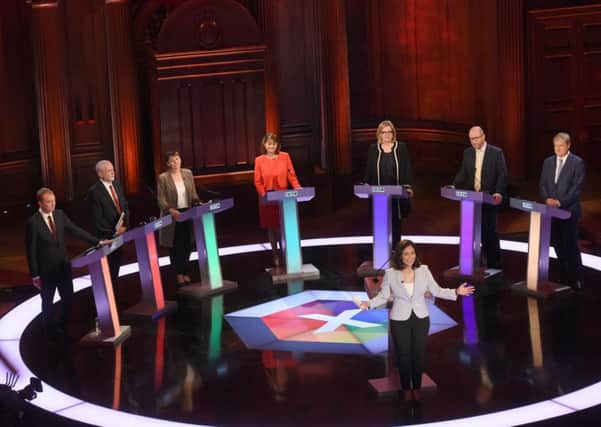DUP: Unfair of BBC to exclude us from debate when smaller parties included


The debate, where much of the focus was on Prime Minister Theresa May’s decision to send a Conservative colleague in her place, featured Labour leader Jeremy Corbyn as well as the SNP, Lib Dems, Ukip, the Greens and Plaid Cymru.
Yet between them Plaid (three MPs), Ukip (one MP) and the Greens (one MP) had fewer than the DUP’s eight MPs elected in 2015. While the Greens (1.1 million votes) and Ukip (3.8 million votes) could point to widespread electoral support, Plaid had a slightly smaller vote than that of the DUP.
Advertisement
Hide AdAdvertisement
Hide AdThe Lib Dems, like the DUP, had eight MPs in the last Parliament.
At the time of going to press, the BBC had not responded to a request for an explanation of why the DUP – which conceivably could support the Tories to form a government if there is a hung Parliament – was not included.
One BBC source indicated that if the DUP was included then Sinn Fein – which had four MPs in the last Parliament although they did not take their seats – would also have had to be included, making the debate unwieldy.
A DUP spokesman said: “The composition of the panel for the BBC debate was unfair and unrepresentative of the United Kingdom. The DUP had the same number of MPs returned at the last election as the Liberal Democrats and we have more seats than a number of the other parties represented in the debate.
Advertisement
Hide AdAdvertisement
Hide Ad“The format of this debate is indicative of the BBC’s dismissive attitude towards Northern Ireland and they have a responsibility to review it for future elections.”
The issue arose two years ago and the DUP threatened legal action against the corporation but ultimately backed down. At the time the BBC argued that it could not include “just one” Northern Ireland party.